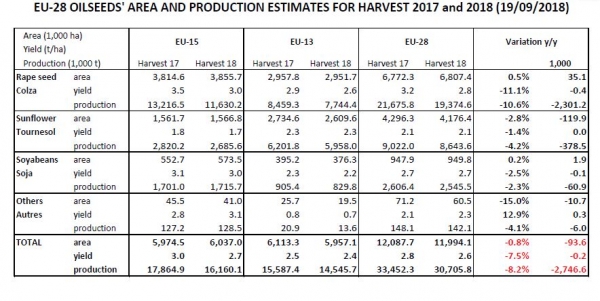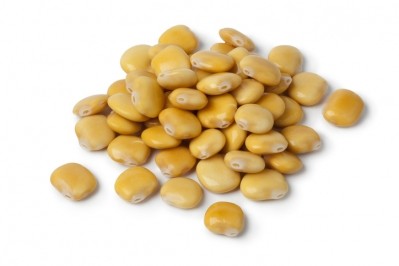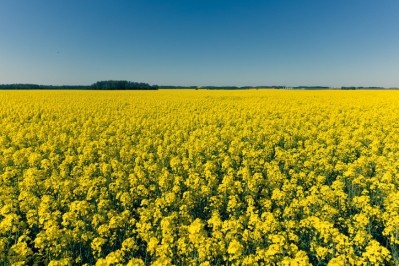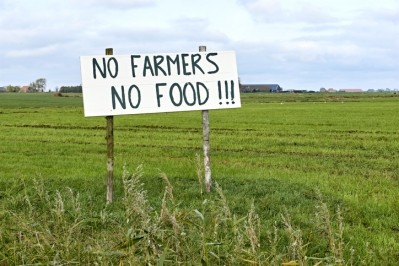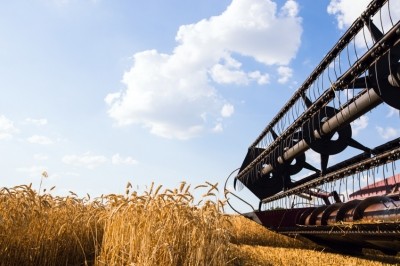Reduction in EU grains and oilseed output forecast
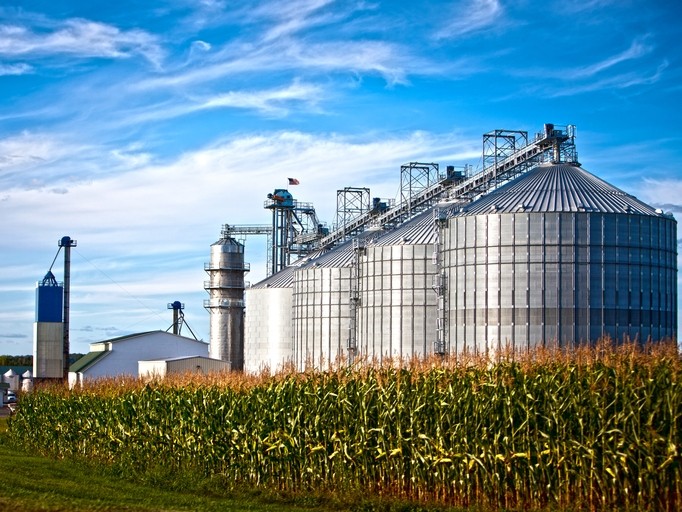
That tonnage would be lower than last year’s crop when farmers harvested 300.2m tons of grains.
Coceral also revised down the wheat crop from 138.8m tons to 129.9m tons, which would again be lower than the 141.9m tons reached in 2017. It said the reductions mainly concern wheat production in Germany, France, the UK and Scandinavia.
It also lowered its forecast for EU barley production, which is down from 60.8m to 57.4m tons, with reductions mainly seen in Germany, France and Scandinavia. The 2017 crop stood at 58.3m tons.
The organization amended its EU’s corn crop projection as well, from 60.3m to 58.9m, noting that upward revisions in the Balkan countries were more than offset by lower numbers for Germany and France in terms of corn. In 2017, EU corn production came in at 60.7m tons.
It predicted that rapeseed production for the EU will be significantly lower, from 21.1m tons to just 19.4m tons. Last year, that came in at 21.9m tons.
Coceral represents the interests of the European trade in grains and oilseeds, feedstuffs, rice, olive oil, oils and fats and agro-supply towards the EU and international institutions, international bodies and stakeholders.
Oilseeds, protein crops
Meanwhile, EU farmer representatives, Copa and Cogeca, has just released data for the 2018 European grains and oilseeds harvest as well, with it forecasting that total EU oilseeds production for 2018 will reach 30.7 m tons, against 33.5m tons from last year.
For protein crops such as peas, beans and sweet lupins, the organization expects production for this year to be around 1m tons less.
“We know already that the current drought episodes will impact the next marketing year. Sowing and seedling emergence are currently made difficult in many regions of the EU as soil conditions are not good,” said Arnaud Rousseau, chair of the working party on oilseeds and protein crops at Copa and Cogeca.
French analysts, Strategie Grains, told Reuters it also anticipates a fall in the rapeseed area, firstly due to the fact that margins are less attractive than last year with the rise in prices of winter cereals, and also because weather conditions are dry all over the EU.
Drought caused serious difficulties for rapeseed sowing in Germany, while parched land hampered rapeseed sowing in France.
Poland also suffered dryness during the rapeseed planting window, Wojtek Sabaranski, an analyst based at Sparks Polska, told Reuters.
